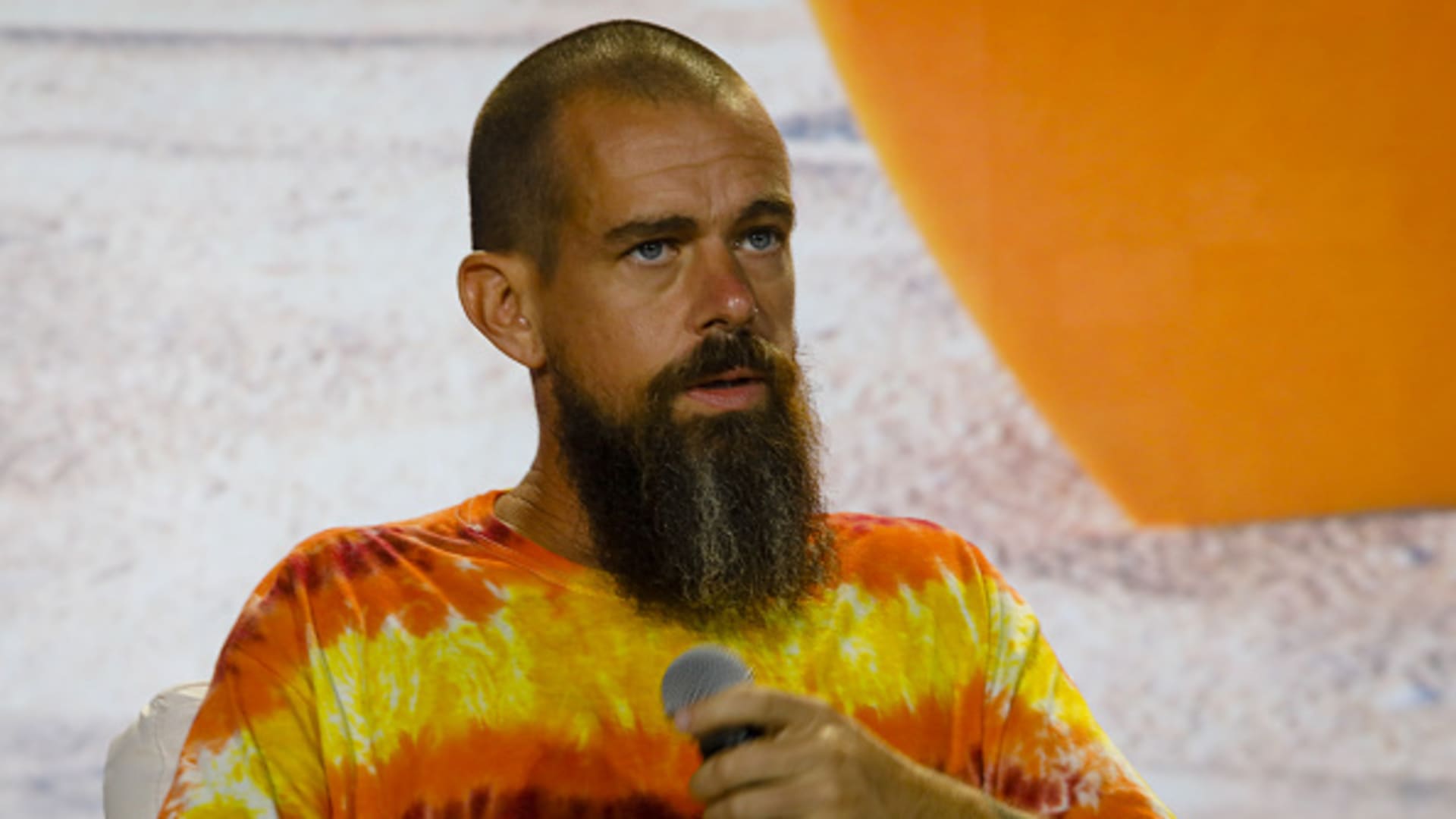
Jack Dorsey, co-founder and chief executive officer of Twitter Inc. and Square Inc., speaks during the Bitcoin 2021 conference in Miami, Florida, U.S., on Friday, June 4, 2021.
Eva Marie Uzcategui | Bloomberg | Getty Images
Robert F. Kennedy Jr.’s bid for the Democratic nomination for president has gained a boost from several Silicon Valley executives.
Block CEO Jack Dorsey endorsed Kennedy on Twitter Sunday, while Twitter owner Elon Musk invited the contender to a live audio discussion on the platform. That discussion is set for 2 p.m. Eastern Time on Twitter and will be moderated by venture capitalist David Sacks, another prominent name in Silicon Valley.
Musk said last year that he would support Florida Governor Ron DeSantis for president in 2024, should he run. DeSantis recently announced his candidacy on a glitch-plagued Twitter Spaces event with Musk and Sacks. But Musk said the event was not a formal endorsement of DeSantis.
President Joe Biden is heavily favored to win the Democratic nomination for 2024. But Kennedy has entered the race appealing to skepticism about vaccines by citing debunked theories linking them to autism. A recent Fox News survey found 19% of Democratic primary voters surveyed said they would support Kennedy in the primary, with a margin of error of plus or minus five percentage points.
Musk has clashed with Democratic officials over Covid restrictions and previously doubted the mortality rate of the disease estimated by public health organizations. After he took over Twitter, the platform stopped enforcing its previous policy to remove misleading information regarding Covid.
On a 2020 earnings call, Musk called stay-at-home orders “fascist.” Early in the pandemic, Musk clashed with California officials who did not allow Tesla to resume operations at its plant there as early as he had hoped due to the global outbreak.
Dorsey, for his part, has a history of supporting underdog and non-mainstream candidates, including businessman Andrew Yang and former U.S. representative Tulsi Gabbard.
WATCH: Why the GOP’s ‘red wave’ never materialized on election night




